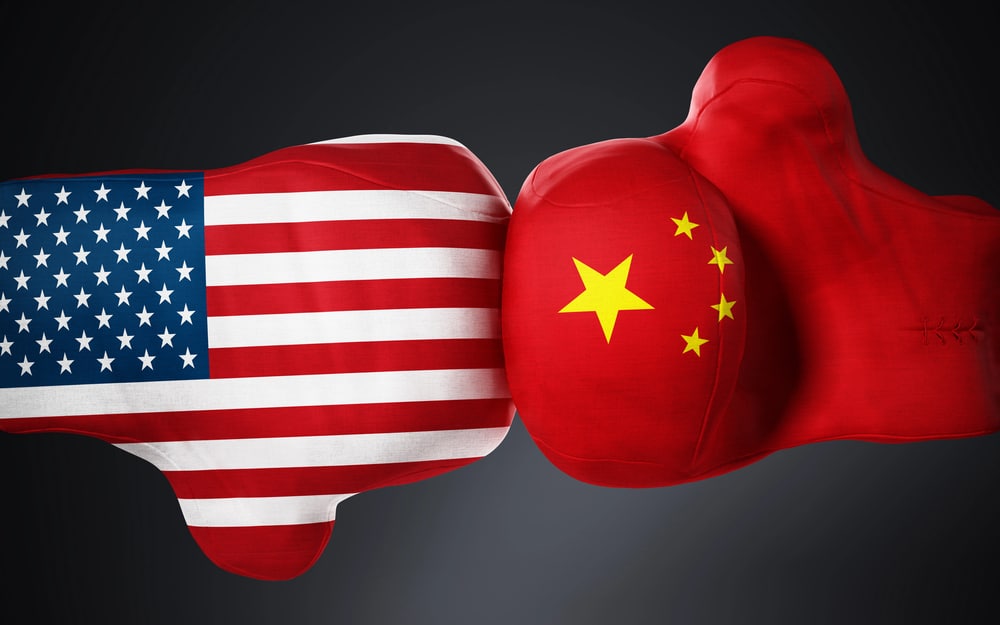The recent meeting between outgoing U.S. President Joe Biden and Chinese President Xi Jinping in Lima, Peru offered a stark illustration of the divergent priorities and perspectives shaping the fraught U.S.-China relationship. While the Biden administration’s statement on the meeting emphasized “responsibly managing competition” and highlighted areas of potential cooperation, Xi took the opportunity to reiterate China’s concerns over American actions that Beijing views as infringements on its four “red lines.”
These contrasts underscore the urgent need for Washington to reevaluate its approach toward Beijing—the impression, strongly given, is that Washington is ignoring Beijing’s complaints, trying instead to force discussion onto issues it feels willing to work with Beijing on. But the current strategy, marked by a mix of competitive posturing, efforts at military and economic containment, and selective moralizing risks perpetuating unnecessary tensions, increasing the likelihood of miscalculation, and ignores clear lessons from recent history.
To start with, for Beijing issues like the status of Taiwan remain non-negotiable, with Xi expressing particular frustration over what he described as a pattern of U.S. inconsistency—“saying one thing and doing another,” vis a vis the so-called “One China Policy.”
But it is on that point, the single most difficult point of the relationship going all the way back to normalization, that the United States doubled down, defending high-level visits, continued arms sales, and naval patrols in the Strait.
U.S. Navy “freedom of navigation” operations in and around the Taiwan Strait, which Washington frames as essential to upholding international law, can easily be seen from Beijing’s perspective as provocative and disrespectful of its territorial claims and sovereignty. To understand this, consider a hypothetical scenario: Chinese warships conducting similar exercises near the Florida Keys, or elsewhere in the eighty odd miles of sea between Florida and Cuba. The outcry in Washington, and likely around the country, would be immediate and severe.
That aside, there is also the increasing chance of a dangerous encounter at sea, particularly in the South China Sea, that could inadvertently spark a showdown neither Washington nor Beijing will feel able to back down from—which would, to put it mildly, be highly undesirable.
More broadly, for Beijing stability in the U.S.-China relationship is predicated on each respecting the sovereignty of the other by refraining from interference in their internal affairs—“red lines” that Beijing accuses Washington of violating through its support for Taiwan and criticisms of China’s domestic policies, political system, and attempted impediment of its developmental pathway.
On that last point, Xi was particularly clear, stating, “[W]hile all countries have national security needs, the concept shouldn’t be overgeneralized or used as an excuse for malicious restrictions and suppression.”
Here, policymakers should heed the wise words of Professor John Mearsheimer, a longtime advocate of economic containment of China, when he recently opined that the time for such efforts has passed and that such efforts now will only fail and be counterproductive.
The topic of human rights (always a focus of Washington’s criticisms of Chinese domestic policy) represents a glaring inconsistency in foreign policy. Its criticisms of China ring hollow when contrasted with U.S. support for countries like Egypt and Azerbaijan, whose human rights records are similarly troubling. Egypt, for instance, continues to receive billions in military aid despite its systematic suppression of political opposition, while the authoritarian regime in Azerbaijan enjoyed American backing even as it engaged in an ethnic cleansing of Nagorno-Karabakh.
This double standard not only undermines the moral credibility of U.S. human rights advocacy but also exacerbates tensions with Beijing, which correctly, along with much of the global south, views such criticisms as hypocritical and politically motivated.
Beijing having clearly defined its “red lines.” The incoming Donald Trump administration should take the opportunity to consider a reset. Washington’s disregard for the “red lines” of a major power has already contributed to the disastrous war in Ukraine. Years of U.S. military aid to Ukraine and NATO’s eastward expansion ignored repeated warnings from Moscow about the strategic importance of that country. The result was a war that has devastated Ukraine, strained the global economy, and further entrenched great-power competition.
A similar pattern appears to be unfolding with Taiwan. Despite official adherence to the “One China” policy, U.S. actions—such as high-profile visits by American lawmakers and arms sales to Taipei—signal a growing willingness to aggressively challenge Beijing’s long-held understanding of the relationship between the three. If history is any guide, ignoring China’s clearly stated red lines could have catastrophic consequences, not just for Taiwan but for the entire Indo-Pacific region.
Despite these challenges, the Lima meeting also highlighted opportunities for a more balanced U.S. policy toward China. Cooperation on artificial intelligence and counternarcotics, though limited in scope, demonstrates that dialogue remains possible even amid broader disagreements. By prioritizing such areas of mutual interest, Washington can begin to rebuild trust and lay the groundwork for a more stable relationship.
Moreover, a restrained approach that avoids provocative actions—such as military exercises near contested territories, for example—could reduce the risk of unintended escalation. Such restraint would not signal weakness but rather a pragmatic recognition of the limits of American power and the dangers of unchecked rivalry.
The Biden-Xi meeting in Lima was a microcosm of the broader U.S.-China relationship; fraught, competitive, and riddled with mistrust. If Washington continues to ignore Beijing’s red lines while selectively applying principles like human rights and international law, it risks perpetuating a cycle of provocation and escalation that benefits neither side.
Instead, U.S. policymakers, particularly those in the incoming Trump administration, should take this moment to reevaluate their approach, prioritizing restraint and pragmatic engagement over confrontation. As the war in Ukraine has shown, ignoring the red lines of major powers leads to disaster. A similar misstep with China could have even graver consequences, as the anticipated conflict would be one of direct military conflict between China and the United States, underscoring the urgent need for a more thoughtful and measured strategy.

































